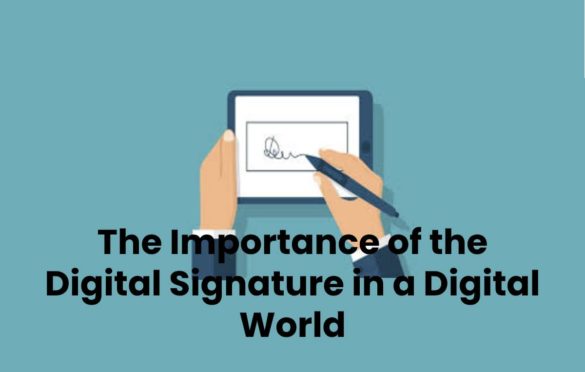
The Importance of the Digital Signature in a Digital World
Digital signature
Digital technologies have come to change the world to never return to a previous state. You can seed electronic devices of various shapes and types in our environment as never before in the history of humanity. From a very young age, our children know and use computers, smartphones, and tablets, learning naturally and without taking learning courses.
People have already gotten used to doing a lot of activities with the use of technology. Clear examples are online payments, the purchase of services and products; as well as bank transactions. Even fun and entertainment (video consoles) rank among the same.
The dependence on technologies forces us to use them to the maximum, making us vulnerable to fraud. This due to the malice of those who have a broader knowledge and violate ethical principles. Every day the need to use digital media in all activities increases, and it is almost always wrongly assumed that digital systems are reliable and secure.
Table of Contents
The Internet is a “Jungle.”
And many times, when we react, we have already been victims of fraud.
The digital signature is a technological solution that gives security and confidence to electronic documents, regardless of the medium in which the information is sent and shared. Digitally signed copies remain intact, even when transferred over the Internet.
The digital signature can authenticate a user in the Internet systems of many public institutions in Costa Rica. Through the digital signature, the documents acquire legal value and probative character as defined by law 8454, by allowing the creation of documents with more security than the handwritten signature.
Use Of Digital Signature
Through digital signatures, paper service and transport remain reduced, and the country’s commitment to carbon neutrality remains promoted. With this resource, there is a considerable increase in the quantity and quality of services aimed at clients of state and private institutions.
Also, the digital signature allows greater efficiency and reduction of operating costs in institutions. The simplification of procedures remains promoted, there are fewer lines, and the security and trust in the services remain guaranteed.
According to the Central Bank of Costa Rica, more than 220 thousand signatures have already stood issued. For which more and more people remain exposed to the reception of digitally signed documents. They are mandatory for the institutions to process any form that remains received authenticated from that way.
The digital signature solves serious security problems that other mechanisms cannot give to documents, such as a simple password, in addition to having legal support. The digital signature remains an effective method to eliminate persons’ impersonation, with adequate training and use.
The data from the Ministry of Science, Technology, and Telecommunications (Micitt), more than 150 state institutions have already adopted the digital signature. They are using it in different tasks and documents.
In the TEC, many people also use it for different procedures with institutions such as the World Bank, the courts of justice, the Comptroller General of the Republic, banks, municipalities, and the Costa Rican Social Security Fund.
Benefits
The possibilities of using the digital signature in the TEC are immense, with direct benefits. Each department or school manages its processes, and they can discover which paper documents can remain replaced.
It seems to me that the TEC as a technological university should be a pioneer. And adopt even more this technical solution, proposing improvements that benefit everyone. Still, it cannot remain overlooked that it must be a joint and coordinated effort.


